Welcome to our first School Librarians of Aotearoa instalment for 2020! Here, we hear from Paul Munnerley, who has the double duty of overseeing the Hurunui College Library and Hawarden Community Library in North Canterbury.
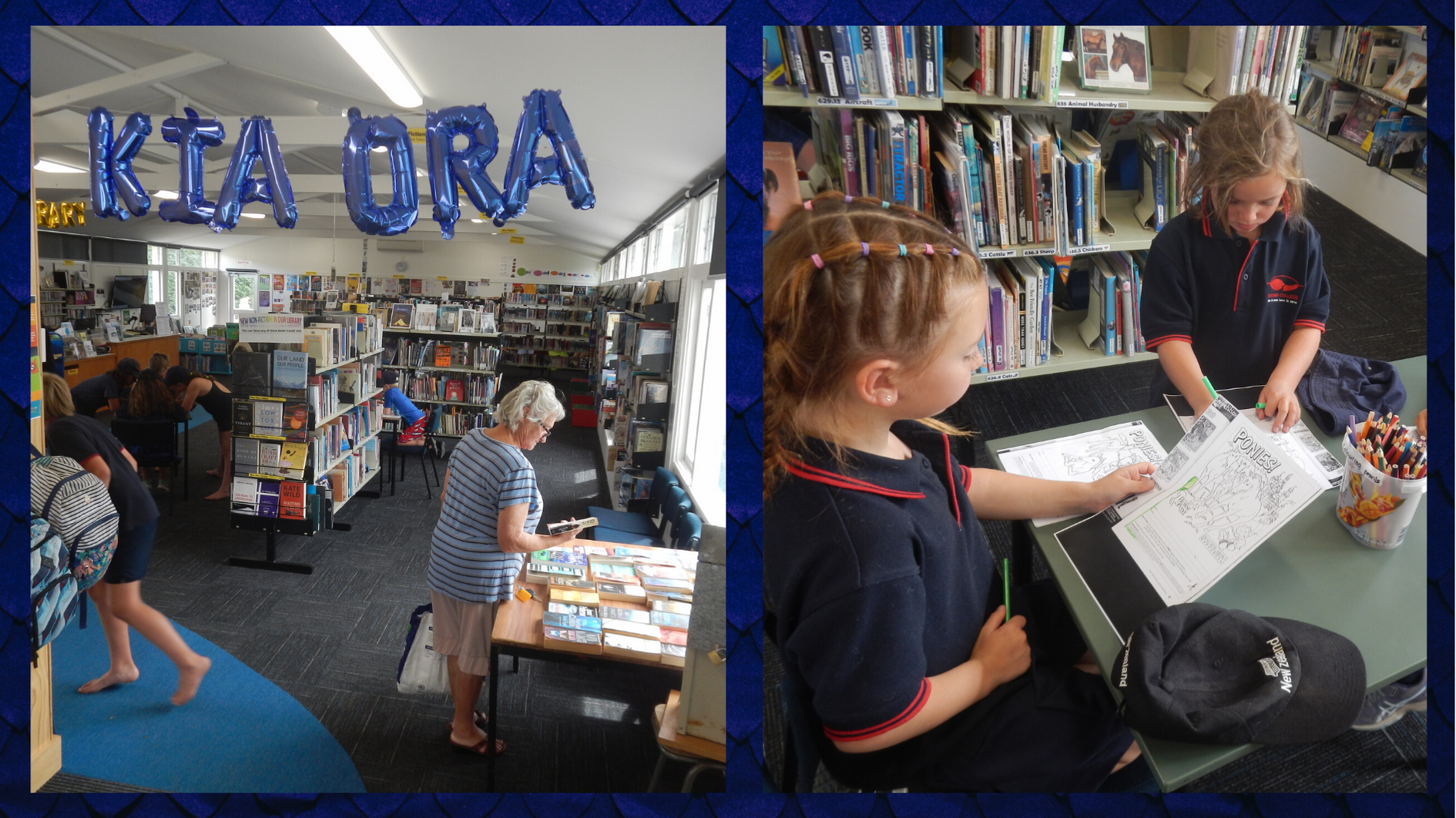
Hurunui College Library – also functioning as the Hawarden Community Library – is located in Hurunui College, in the village of Hawarden, 80 kilometres north of Christchurch. We have been a community library since 1982, when the small local public library moved into the newly built school library building. As a primary teacher at the school, I was on the original Community Library Committee that was formed to liaise between the school and community and fundraise for anything the joint library needed.
In 1989 and 1990, I had two years out of the classroom working as teacher-librarian here. In 1993, the Hurunui District Library was started and we became part of that network of nine libraries stretching from Cheviot to Leithfield. In 2014 both the school and district librarians who worked at our library retired, and I was lucky enough to take on both jobs, starting in 2015.
Hurunui College and Hurunui District Library have a good working relationship, so we have a seamless service for all our customers. Using the National Library’s Kotui system, our borrowers can search the entire HDL collection and get books from any Hurunui library via a courier system that does the circuit twice a week.
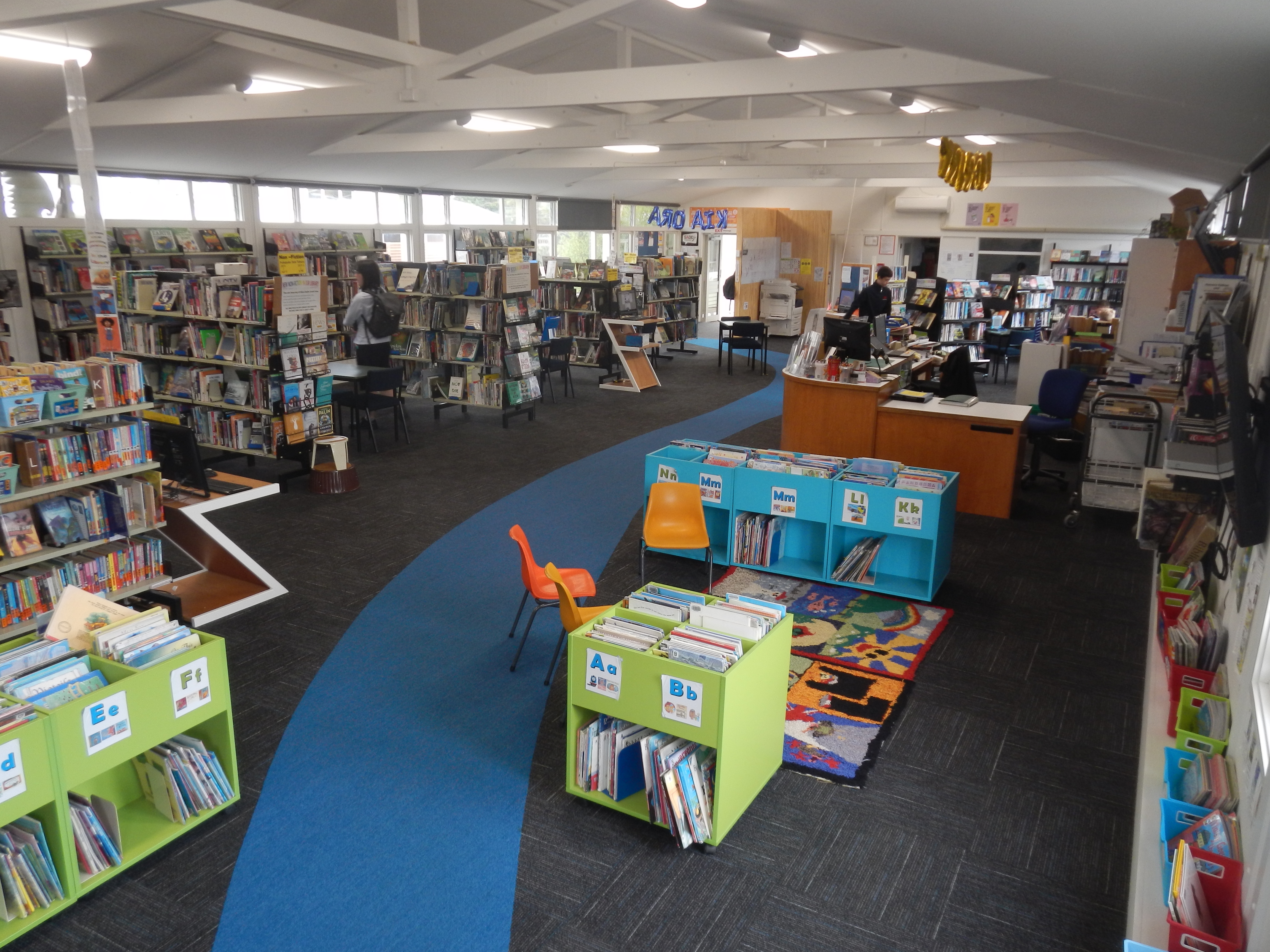
Catering to kids and community
The library opens at 8:45am; with help from student librarians and community volunteers, we stay open till 4pm. Classes, groups and individuals from Year 1 to Year 13 visit throughout the week. As a trained teacher, I take charge of primary level classes so their teachers can be given extra release time. I work with junior classes by taking reading groups for activities in the library, and for senior classes I take them through research skills, introducing EPIC, book promotions… anything staff want me to do!
As a trained teacher, I take charge of primary level classes so their teachers can be given extra release time.
We have timetabled study groups and we are sometimes a ‘time-out’ space for students. Morning tea and lunch are very busy (and noisy), with students from all levels reading, playing board and card games, working on computers, socialising and inevitably using their devices! The public are welcome throughout the day – our students are very welcoming! We have APNK computers, free WiFi and at the right times, students who make espresso coffees! This is my sixth year in the library, and I look forward to every day, working with Hurunui District Library staff, school staff, students from every year level, community members and visitors to the Hurunui.
A new look
Our library went through significant renovations in 2018. The main change was to replace the workroom that was at one end of the building with a work area in the middle of the library. It has proven to be great for supervision, visibility, accessibility and interaction. Being in the middle of the school, we have entry from both end of the library. The adult fiction collection is near the main entry door at the secondary school end for easy access. Non-fiction runs along one side of the room, with a sight line all the way down. Picture books live in mobile bins, children’s fiction, young adult fiction and graphic novels are situated at the primary school end.
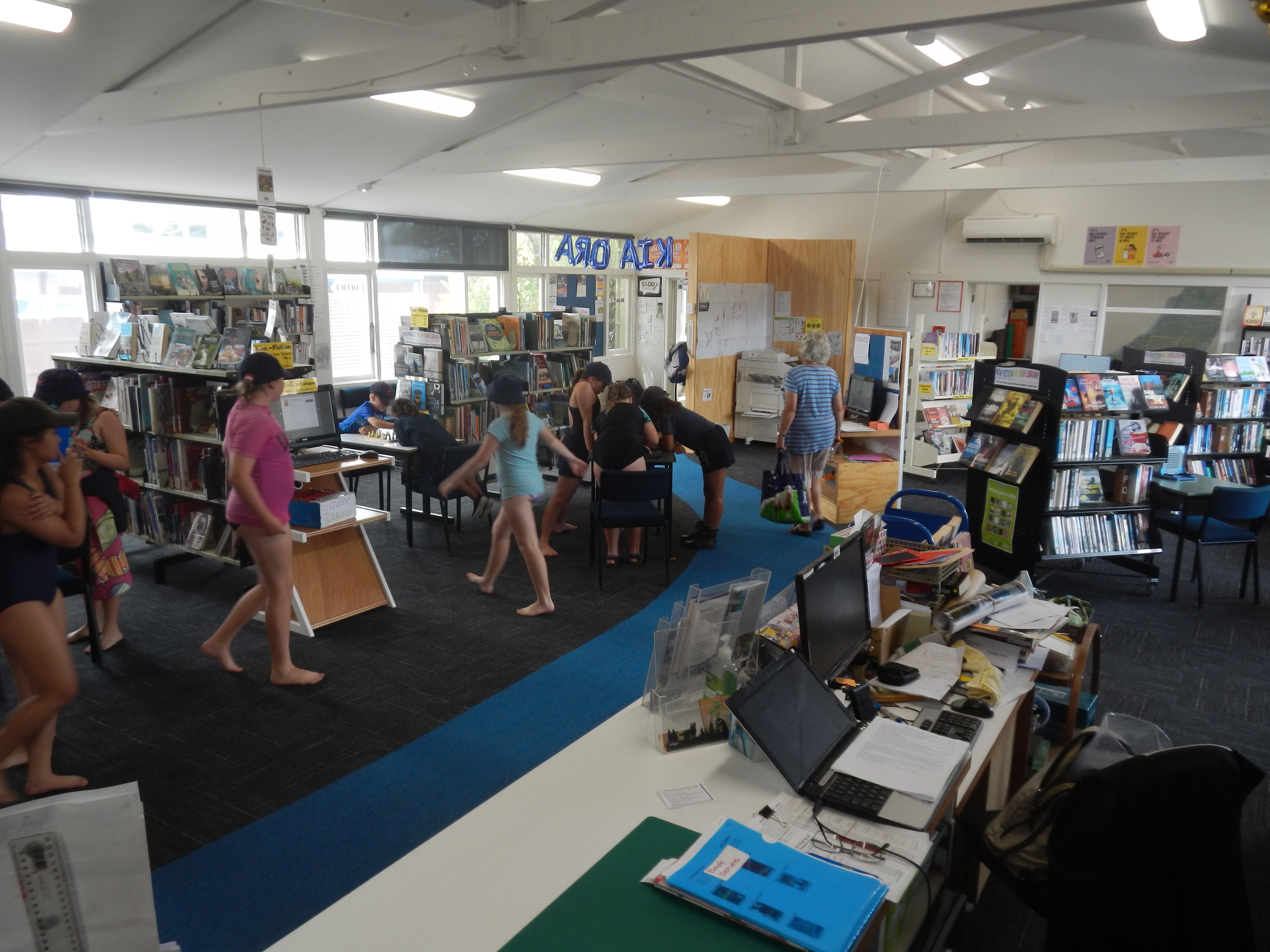
The plan this year is to replace all the free-standing shelving with mobile shelves. I want to have a mix of face-out and spine-out shelves in each unit to cater to school and community users alike. The new shelving will provide better display spaces than we currently have and give us the flexibility to change the layout and use the library for things like speeches, debates, night classes, meetings and presentations.
As part of the 2018 renovations, some senior workshop technology students designed and built a custom display unit. We have a large TV screen that plays book trailers mainly aimed at children and teen readers. To attract viewers, we also play photos of school activities on the screen at the same time.
I have a literal open door policy – the library doors are always open whenever the weather permits. A Hawarden frost or nor’wester are usually the only reasons to close them! My aim is to make our library the go-to place at school.
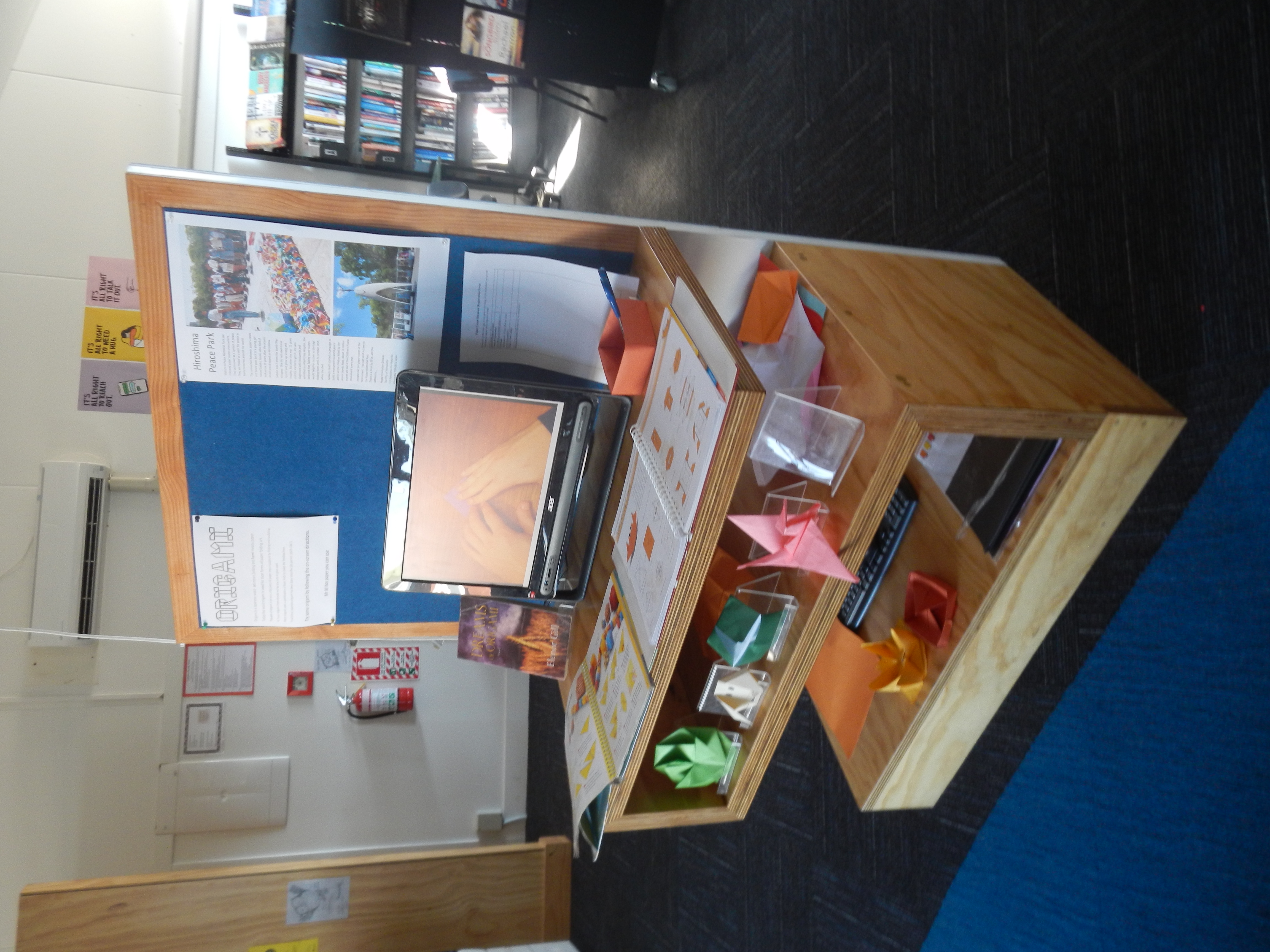
Getting young people reading
When it comes to children’s literature, my philosophy is simple: get them reading, whatever they are willing to read. I remember a reluctant reader who discovered Katherine Applegate’s Animorphs series, and they acted as the trigger to his literacy journey. Once you have them hooked, you can reel them in to other books, e-books, audiobooks, magazines…
Once you have them hooked, you can reel them in to other books, e-books, audiobooks, magazines…
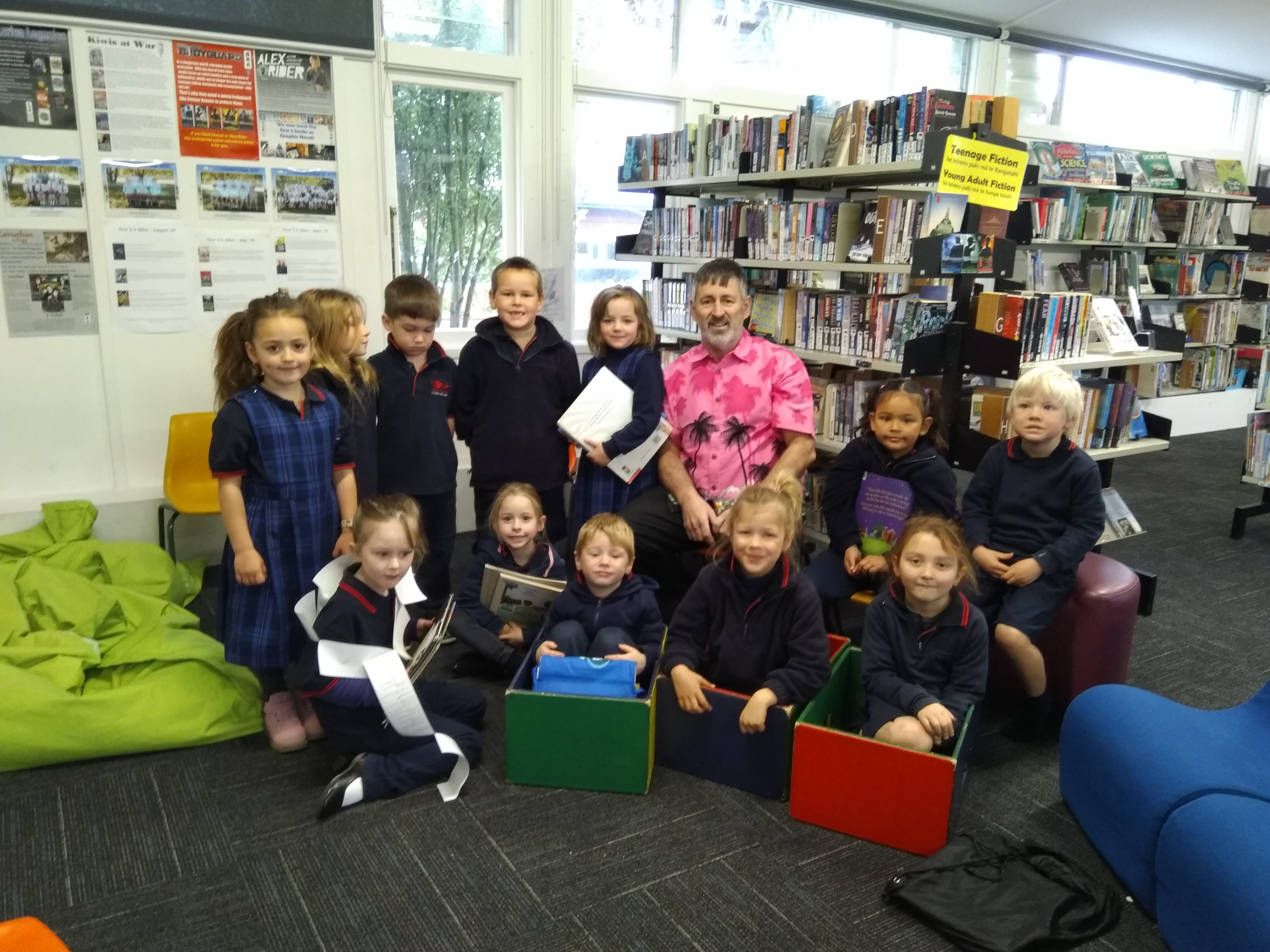
Read to them, read with them. I try to read an excerpt from a book to every class whenever they visit. I hold a book ‘raffle’ at the end, to see who gets in first to issue the book – and the number of holds that go on the book will indicate the level of success of my choice!
Apart from the HELL Reading Challenge and the Hurunui District Libraries Summer Reading programme, which are popular with our students, we did a ‘Read the Book, Get the Movie Free’ promotion. It was great to often hear the comment that ‘the book was better than the movie’! I have done this in reverse by offering the DVD to a reader to get them into a book or series on the promise that they will read at least the next book in the series or another book. Anything to get them reading!
Building professional connections
I attend meetings of the School Library Network run by our two fantastic Christchurch National Library Facilitators, Jan and Cathy. You can’t beat face-to-face get-togethers with colleagues to learn and share. I attended the SLANZA conference in Christchurch few years ago, which was another excellent, stimulating occasion with so many thought-provoking presentations.
You can’t beat face-to-face get-togethers with colleagues to learn and share.
I would like to see more fiction aimed at boys in the 8 to 14 age range about things like hunting, fishing, truck driving, New Zealand sports and recreation and the quirky side of Kiwi life. Barry Crump and Al Lester come in at the top of that age range. When I taught Year 7, I would often encourage students to write their own ‘book’ about a subject they couldn’t find anything to read about in the library. I still have copies that I can show to them later in their school careers or, even better, to their younger brothers and sisters! Our school (and community and DoC) is heavily involved in the Nina Valley Conservation/Restoration Project, where our students are working on pest eradication and restoring native species including kiwi, whio and kea. Just ripe for some fiction to grab the interest of readers! I would also like to see more graphic novels reflecting Aotearoa New Zealand life and heritage. And how about taking GST off children’s books?
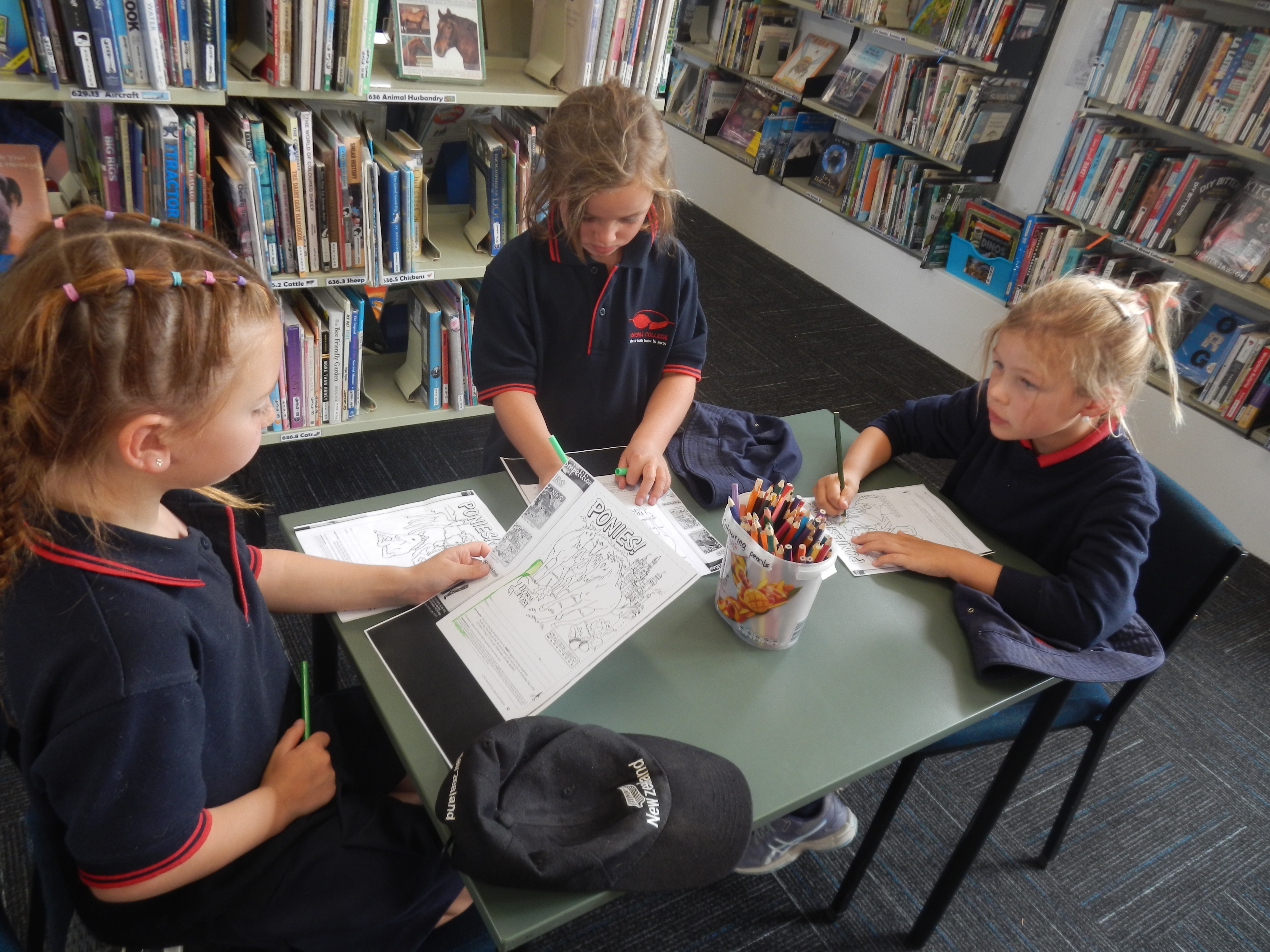
Paul’s passion for the power of reference books
Our ever diminishing reference section contained a very early 21st century version of the World Book encyclopedia. In 2016 I got a grant from a local funding organisation and bought the new version. There were a few raised eyebrows! Then along came a Year 5 reading group, keen to do research projects. After working out topics, and guiding questions they were ready to start finding answers. A combination of not enough devices and complex log-in procedures involving spelling challenges and remembering passwords presented the perfect opportunity to introduce the World Book.
In no time at all they knew how to locate the volume they needed, use the guide words to find the entry for their topic, and the excitement when they found a fact or answer they needed was very rewarding, for them and for me! No copy/paste here: they hand wrote notes or word-processed them. Next time they came to the library, they were all able to go straight back to their article and continue their voyage of discovery. World Book proved to be a really accessible first source for answers.
The excitement when they found a fact or answer they needed was very rewarding, for them and for me!
This led on perfectly to introducing the students to Britannica School. They loved the different levels and the ‘read to me’ function. Te Ara and Digital NZ followed in quick succession. We also looked at the non-fiction section of the library, how to talk to people in their families and local community as information sources. Google was the last resort! I have since worked with upper primary and secondary classes and introduced them to the World Book as a great first choice for quick information to get them started on an inquiry.
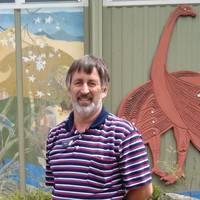
Paul Munnerley
Born and raised in Christchurch, Paul got a teaching job at Hawarden Area School in 1981. Country life was so much to his liking, that he's still there, 39 years later. He loves the school, the community and the lifestyle. And the library is a fantastic place to work.



